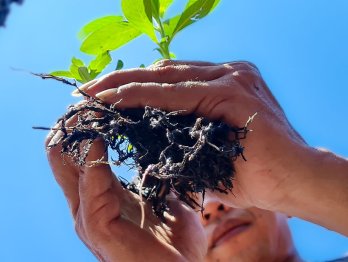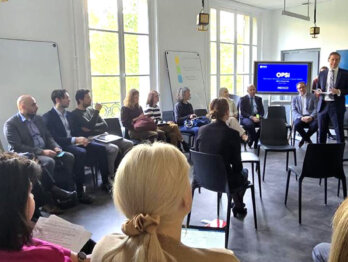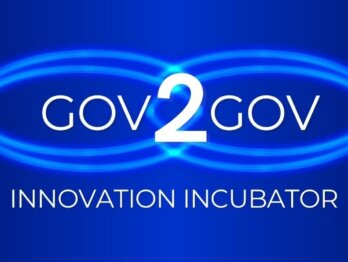Reducing friction in public services: Three lessons learned from the first International Sludge Academy

The International Sludge Academy, launched in 2023, is a partnership between the OECD and the Government of New South Wales (NSW) in Australia. Over the course of 5 months, 16 teams from 14 countries completed sludge audits on government processes and public services. Learn more about the Academy and the sludge audit approach in our previous blog: “Spotting the sludge: Behavioural audits to improve public services across countries.”
Have you ever felt frustrated by an unnecessarily lengthy government form or exasperated while trying to navigate a complicated public service website in search of the information you need? If so, you have experienced ‘sludge’ – unjustified friction that affects citizens’ satisfaction, trust, and access to government services.
Last year, governments from around the world joined forces to tackle sludge through the International Sludge Academy, a partnership between the OECD and the Government of NSW. Sixteen teams piloted the NSW Government sludge audit method and tool, a robust behavioural assessment for public services and internal government processes. Sludge audits pinpoint practical, emotional, and social barriers to accessing government services. The NSW Government has used sludge audits to make many services easier to use, including increasing the attendance of milestone health checks by 24%.
Throughout the International Sludge Academy, teams engaged in peer learning discussions, mentorship sessions, and masterclasses, including a talk from Prof. Cass Sunstein, author of Sludge: What Stops Us from Getting Things Done. Below, we bring you three key lessons learned from the International Sludge Academy.

1. Sludge audits helps teams quantify hidden frictions users face
Academy members using the NSW sludge method were prompted to consider time, cost, effort, and inclusion for every step in their behavioural journey map. This approach simplifies complex processes and offers a tangible way to express burdens in public services. Audits operationalise behavioural science principles into values that are easily digestible, ultimately allowing teams to justify improvements. For example, one team found that while staff had been aware of the challenging internal onboarding process, quantifying the precise time burden for managers made it a more compelling case for change.
Besides being important to identify opportunities to reduce time losses and costs, sludge audits can be a powerful tool to spot inequalities in the access to public services.
Ministry of Management and Innovation in Public Services (Brazil)
2. Sludge audits are useful across diverse teams, services, users, and governments
Sludge audits not only allow us to create better services for the public, but also to create better internal processes for our colleagues.
British Columbia Behavioural Insights Group (Canada)
Teams audited services across a wide range of government areas, from the Government of Canada’s largest student employment program to New Zealand’s criminal justice case management process.
- Diverse teams: The Academy was comprised of teams from all levels and parts of government. Some were specialised in behavioural science, such as the British Columbia Behavioural Insights Group in Canada, while others were from industry-specific government departments, like the Ministry for Digitalisation in Luxembourg.
- Diverse services: Teams audited both public services and internal government processes. For instance, France’s Direction Interministérielle de la Transformation Publique (DITP) audited the Personalized Autonomy Allowance, a public service designed to provide financial aid, meal deliveries, and household assistance to elderly individuals facing autonomy challenges. Conversely, the Treasury Board of Canada Secretariat applied the sludge audit methodology to the Federal Student Recruitment Program, an internal student recruitment program available to managers across Canada’s federal public service looking to hire students.
- Diverse users: Service users ranged from individuals, such as citizens or public servants, to entire organisations. Teams recognised the distinct challenges often faced by users and reflected these in their audits. For instance, one team created different journey maps for each user in an onboarding process, noting that their experiences may vary. Another team used ranges instead of averages when estimating the time it might take citizens with autonomy challenges to complete a form.
Governments especially valued the systematic approach of the sludge audit. Using a single tool across government services invited collaboration within and across departments. Having defined inputs and outputs ensured objectivity throughout the process, and the behavioural science lens allowed staff to gather new data and insights.
The Sludge Audit method provided to us is a useful tool, expanding our capabilities for advisory work. The audit method is a systematic way of achieving swift results, useful for conducting rapid exploratory work.
Behavioural Science Aotearoa (New Zealand)
3. Sludge audits pinpoint areas for behavioural interventions to improve services
Governments around the world know that accessing public services can be a confusing and frustrating process for citizens. While there is interest in improving the quality of services, it can be difficult to pinpoint frictions and prioritise areas to address. This is precisely where the sludge audit comes in.
The audit output provides teams with a summary of the friction points within their processes. This summary includes information about the specific location of friction points within the behavioural journey, the impact on citizens’ experiences in terms of time, effort, and inclusion, along with recommendations on where to prioritize further investigation. This effectively allows governments to identify areas for targeted behavioural interventions.
For example, Brazil’s Ministry of Management and Innovation in Public Services noticed a high dropout rate of citizens recovering their gov.br account, a government login required for access to over 4800 digital services. With help of the sludge audit summary, the team was able to identify a notification that was causing citizens to give up on recovering their gov.br account. It was revealed that toward the end of the account recovery process, citizens were informed of a 48-hour wait time – leading to frustration and the abandonment of the process – when the real wait time was under 30-minutes.
By making invisible frictions, visible, the team developed potential behavioural interventions to improve the account recovery process. Soon, they hope to implement live waiting time updates to minimise frustration and improve citizens’ access to digital services.
The journey mapping process has been very helpful – interesting to see how they’ve already found sludge just through this exercise.
Anonymous (International Sludge Academy Feedback Survey)
Next Steps
The International Sludge Academy has sparked a global movement, empowering governments around the world to identify unnecessary frictions and develop behaviourally informed solutions. After piloting the sludge audit tool, teams from around the world expressed interest in translating lessons learned into an international framework with guidelines for sludge busting.

The OECD is systematising the experiences of International Sludge Academy teams, building on the NSW Government’s pioneering sludge work, and drawing on insights from members of the OECD Network on Behavioural Insights Experts in Government. In 2024, further resources will be developed to support international application and comparability of sludge audits to improve government services.
Stay tuned for more updates in the realm of behavioural science and public service optimisation! If you want to reduce friction in your organisation and improve your customers’ experiences, reach out to [email protected] to learn more about conducting a sludge audit.
This blog is funded by the European Union. Its contents are the sole responsibility of the authors and do not necessarily reflect the views of the European Union.











